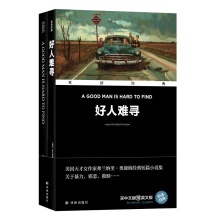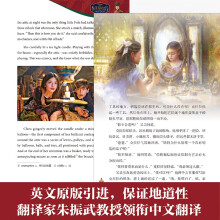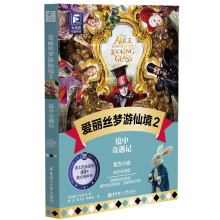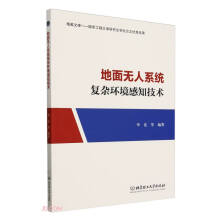










小说讲述了生于一个贫苦小贩家庭的少女苔丝,先被一个富亲戚的少爷诱奸,后与牧师的儿子恋爱并订婚,在新婚之夜她把昔日的不幸向丈夫坦白,却没能得到原谅,丈夫离去。几年后,苔丝再次与少爷相遇,被其纠缠,因家境窘迫不得不与之同居,不久丈夫归来,表示悔恨。苔丝害怕第二次失去丈夫而愤怒地将少爷杀死。最后她被捕并被处以绞刑
Phase the First: The Maiden
I
On an evening in the latter part of May a middle-aged man was walking
homeward from Shaston to the village of Marlott, in the adjoining
Vale of Blakemore, or Blackmoor. The pair of legs that carried him
were rickety, and there was a bias in his gait which inclined him
somewhat to the left of a straight line. He occasionally gave a
smart nod, as if in confirmation of some opinion, though he was not
thinking of anything in particular. An empty egg-basket was slung
upon his arm, the nap of his hat was ruffled, a patch being quite
worn away at its brim where his thumb came in taking it off.
Presently he was met by an elderly parson astride on a gray mare,
who, as he rode, hummed a wandering tune.
"Good night t'ee," said the man with the basket.
"Good night, Sir John," said the parson.
The pedestrian, after another pace or two, halted, and turned round.
"Now, sir, begging your pardon; we met last market-day on this road
about this time, and I said 'Good night,' and you made reply '_Good
night, Sir John_,' as now."
"I did," said the parson.
"And once before that--near a month ago."
"I may have."
"Then what might your meaning be in calling me 'Sir John' these
different times, when I be plain Jack Durbeyfield, the haggler?"
The parson rode a step or two nearer.
"It was only my whim," he said; and, after a moment's hesitation: "It
was on account of a discovery I made some little time ago, whilst I
was hunting up pedigrees for the new county history. I am Parson
Tringham, the antiquary, of Stagfoot Lane. Don't you really know,
Durbeyfield, that you are the lineal representative of the ancient
and knightly family of the d'Urbervilles, who derive their descent
from Sir Pagan d'Urberville, that renowned knight who came from
Normandy with William the Conqueror, as appears by Battle Abbey
Roll?"
"Never heard it before, sir!"
"Well it's true. Throw up your chin a moment, so that I may catch
the profile of your face better. Yes, that's the d'Urberville nose
and chin--a little debased. Your ancestor was one of the twelve
knights who assisted the Lord of Estremavilla in Normandy in his
conquest of Glamorganshire. Branches of your family held manors over
all this part of England; their names appear in the Pipe Rolls in the
time of King Stephen. In the reign of King John one of them was rich
enough to give a manor to the Knights Hospitallers; and in Edward the
Second's time your forefather Brian was summoned to Westminster to
attend the great Council there. You declined a little in Oliver
Cromwell's time, but to no serious extent, and in Charles the
Second's reign you were made Knights of the Royal Oak for your
loyalty. Aye, there have been generations of Sir Johns among
you, and if knighthood were hereditary, like a baronetcy, as it
practically was in old times, when men were knighted from father
to son, you would be Sir John now."
Phase the First: The Maiden
I
On an evening in the latter part of May a middle-aged man was walking
homeward from Shaston to the village of Marlott, in the adjoining
Vale of Blakemore, or Blackmoor. The pair of legs that carried him
were rickety, and there was a bias in his gait which inclined him
somewhat to the left of a straight line. He occasionally gave a
smart nod, as if in confirmation of some opinion, though he was not
thinking of anything in particular. An empty egg-basket was slung
upon his arm, the nap of his hat was ruffled, a patch being quite
worn away at its brim where his thumb came in taking it off.
Presently he was met by an elderly parson astride on a gray mare,
who, as he rode, hummed a wandering tune.
"Good night t'ee," said the man with the basket.
"Good night, Sir John," said the parson.
The pedestrian, after another pace or two, halted, and turned round.
"Now, sir, begging your pardon; we met last market-day on this road
about this time, and I said 'Good night,' and you made reply '_Good
night, Sir John_,' as now."
"I did," said the parson.
"And once before that--near a month ago."
"I may have."
"Then what might your meaning be in calling me 'Sir John' these
different times, when I be plain Jack Durbeyfield, the haggler?"
The parson rode a step or two nearer.
"It was only my whim," he said; and, after a moment's hesitation: "It
was on account of a discovery I made some little time ago, whilst I
was hunting up pedigrees for the new county history. I am Parson
Tringham, the antiquary, of Stagfoot Lane. Don't you really know,
Durbeyfield, that you are the lineal representative of the ancient
and knightly family of the d'Urbervilles, who derive their descent
from Sir Pagan d'Urberville, that renowned knight who came from
Normandy with William the Conqueror, as appears by Battle Abbey
Roll?"
"Never heard it before, sir!"
"Well it's true. Throw up your chin a moment, so that I may catch
the profile of your face better. Yes, that's the d'Urberville nose
and chin--a little debased. Your ancestor was one of the twelve
knights who assisted the Lord of Estremavilla in Normandy in his
conquest of Glamorganshire. Branches of your family held manors over
all this part of England; their names appear in the Pipe Rolls in the
time of King Stephen. In the reign of King John one of them was rich
enough to give a manor to the Knights Hospitallers; and in Edward the
Second's time your forefather Brian was summoned to Westminster to
attend the great Council there. You declined a little in Oliver
Cromwell's time, but to no serious extent, and in Charles the
Second's reign you were made Knights of the Royal Oak for your
loyalty. Aye, there have been generations of Sir Johns among
you, and if knighthood were hereditary, like a baronetcy, as it
practically was in old times, when men were knighted from father
to son, you would be Sir John now."
Contents
Phase the First: The Maiden
Phase the Second: Maiden No More
Phase the Third: The Rally
Phase the Fourth: The Consequence
Phase the Fifth: The Woman Pays
Phase the Sixth: The Convert
Phase the Seventh: Fulfilment
温馨提示:请使用长沙图书馆的读者帐号和密码进行登录